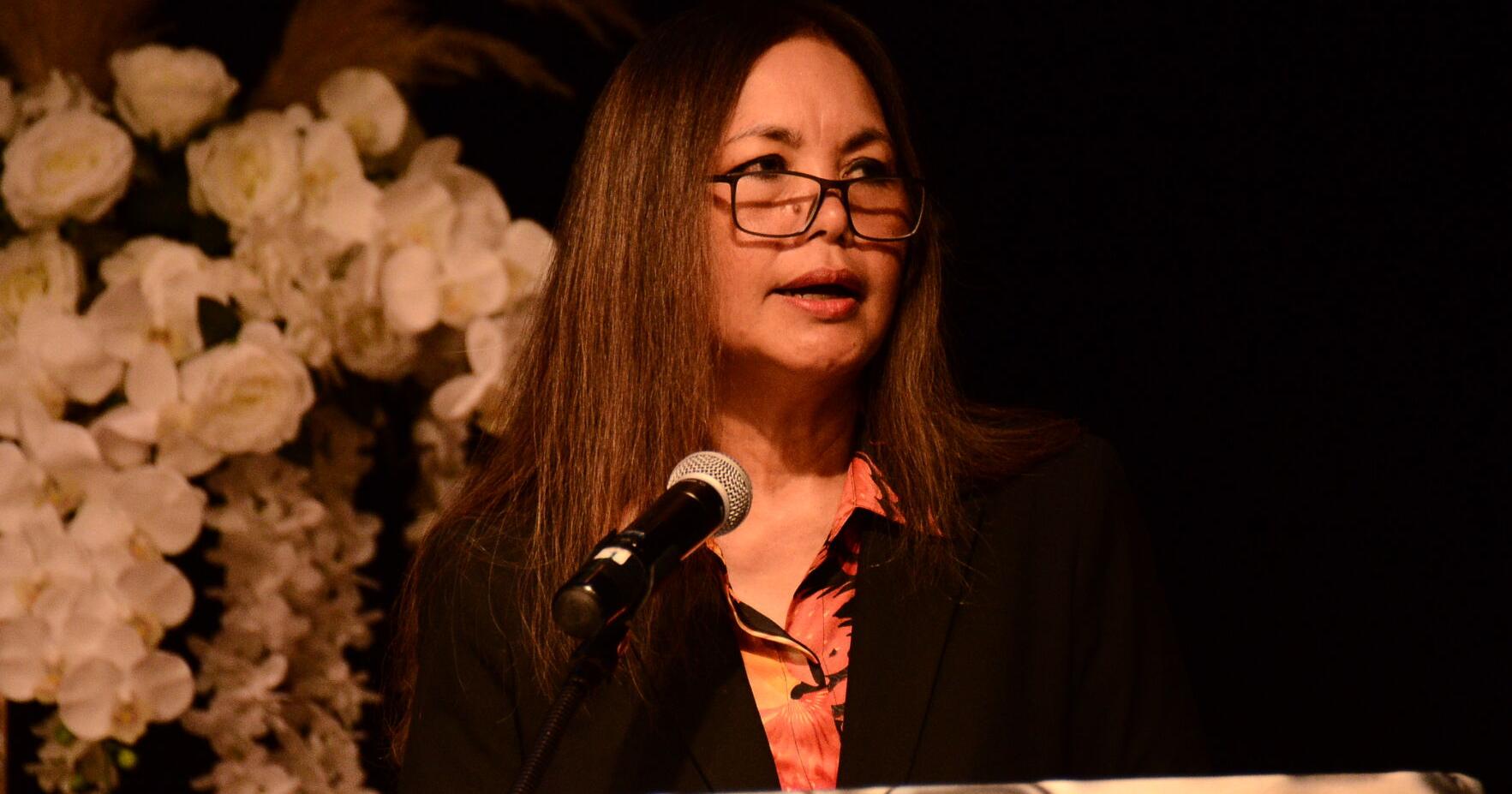Military buildup on Guam brings security implications related to human trafficking

There is only one way to describe human trafficking, “modern slavery,” according to former Secretary of State Condoleezza Rice, who addressed local leaders during the annual Human Rights Conference.
“It is really important that every country, every leadership, every citizenry be completely devoted to the idea that we have to end modern-day slavery,” Rice said during a remote appearance.
The two-day conference delved into human trafficking on Guam and in the Pacific through engaging discussions with law enforcement, government, private business and victim advocacy groups.
Labor and sex trafficking are two of the most prevalent forms of human trafficking seen in the region, attorney Alicia Limtiaco said, adding there are several factors that contribute to human trafficking including mobility and migration, and cultural issues, but there are also security implications.
During the conference, Limtiaco provided examples of times security interests and human trafficking have interlinked in the region.
“We've seen in the 1980s, U.S. Subic Bay Naval Base, Philippines, was the largest U.S. military base outside of U.S. at the time and was said to have an estimated $500 million generated in revenue by brothels surrounding the base,” Limtiaco said.
Although the base closed in the 1990s, the commercial sex industry persists today.
In 2012, the Korea Times reported that more than a million Korean women had been used in prostitution by U.S. troops since 1945.
Instances of this type of support of sexual exploitation have also been seen on Guam, Limtiaco said.
“We see that the Guam Naval Fleet and Family Services Unit also observed dramatic increases of sexual assault and possible trafficking violations that correlated to the submarines and naval ships that were arriving in port,” Limtiaco said.
In response, harsher violation articles were issued and service members underwent required human trafficking training, she said.
“In 2009, we saw the International Network of Women Against Militarism from Guam, Japan, Okinawa, South Korea, Philippines, Australia, Palau, Marshall Islands, the Northern Mariana Islands, Puerto Rico and the United States hold meetings and public forums on human trafficking and prostitution, … relating to militarization and buildup,” Limtiaco said.
Guam anticipates the relocation of U.S. Marines from Okinawa to Guam, which continues to be met with some political opposition.
“There may be disagreement and activism that continues today. There are also, again, the references and arguments to the criminal, social health and other human related rights that come with this realignment that has been put forward,” Limtiaco said.
Limtiaco said the data prompts concern and suggests the need to get ahead of potential issues.
“When we do the research and we look at other jurisdictions, other countries, we do see this correlation where you have an increase in whether it's security forces or military personnel or peacekeeping mission personnel, there has been an increase in trafficking, particularly sexual, in sex trafficking. We're not creating this data, we are not creating the research, it happened, it's been reported, it's been seen. We don't want to not consider what the trends have been in other countries or places. We want to be prepared, especially in prevention efforts, so that we can minimize any sort of adverse impact,” Limtiaco said.
According to the United Nations office on Drugs and Crime 2020 global report, in the profile of victims in east Asia and the Pacific, women represented the largest share of detected victims at 48%, children were a third of victims in 2018. While one in five victims is an adult man.
“It has been reported, at least in the east Asian countries, women or girls are more frequently victims. The information received in the countries in the Pacific refers to large percentages of girl victims of trafficking in the Solomon islands, men detected in New Zealand and men, women and girls in Australia.”
On Guam, there have been three cases of human trafficking which authorities uncovered and put to an end. One high-profile case involved bar owner Song Ja Cha, the Blue House Lounge and two Guam Police Department officers.
In 2011, the bar owner was convicted of conspiracy, sex trafficking, coercion and enticement to travel in foreign commerce for prostitution, and transportation of minor for prostitution. The case involved 10 victims from Chuuk, Federated States of Micronesia, who traveled to Guam under the guise of good-paying jobs and were forced into prostitution.
Cha died in custody while the two police officers remain in custody at the Department of Corrections.
This “Eyes on Trafficking” story is reprinted from its original online location.
 ABOUT PBJ LEARNING
ABOUT PBJ LEARNING
PBJ Learning is a leading provider of online human trafficking training, focusing on awareness and prevention education. Their interactive Human Trafficking Essentials online course is used worldwide to educate professionals and individuals how to recognize human trafficking and how to respond to potential victims. Learn on any web browser (even your mobile phone) at any time.
More stories like this can be found in your PBJ Learning Knowledge Vault.
EYES ON TRAFFICKING
This “Eyes on Trafficking” story is reprinted from its original online location.
ABOUT PBJ LEARNING
PBJ Learning is a leading provider of online human trafficking training, focusing on awareness and prevention education. Their interactive Human Trafficking Essentials online course is used worldwide to educate professionals and individuals how to recognize human trafficking and how to respond to potential victims. Learn on any web browser (even your mobile phone) at any time.
More stories like this can be found in your PBJ Learning Knowledge Vault.
